AC Joint dislocation ACUTE
Common Conditions of the Shoulder
Acromioclavicular Joint (ACJ) Disorders
Acromioclavicular Joint (ACJ) Disorders
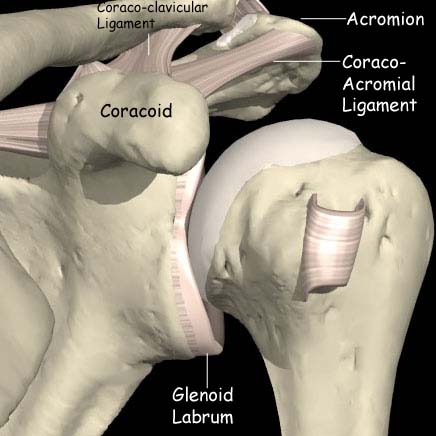
This joint is located at the end of the clavicle (collar bone) at the top of the shoulder. There are two common conditions affecting this joint.
Dislocation of the joint usually occurs following a fall onto the hand or elbow or onto the point of the shoulder. More commonly the joint partially dislocates, this is known as a subluxation.
Severe pain is felt over the shoulder and any attempt to lift the arm up or carry anything makes this worse. A bump may be felt over the top of the shoulder. This is usually very tender.
The doctor will listen to the description of events and examine the shoulder. X-Rays will also be taken. Occasionally the patient will be asked to carry a weight in the affected hand during the X-Ray. This is designed to stress the joint and make the dislocation more obvious.
Injury to the AC Joint can be classified into 6 grades
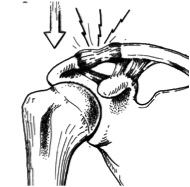
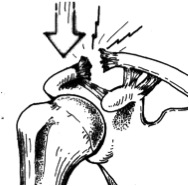
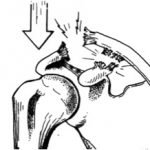
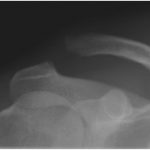
Grades 1 & 2 are essentially sprains. These hurt but with have little deformity.
Grade 3 dislocations have some deformity but are usually stable and can be treated like the Grades 1 & 2.
These require only a sling to rest the joint for a few days followed by exercises to recover the range of movement. It takes about 6 weeks for the discomfort to settle and a bump will always remain but otherwise they heal well.
Work and sports can be resumed as soon as comfort allows and there is no bar to contact sports in the future.
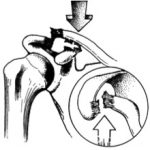
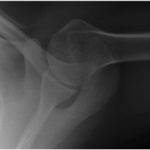
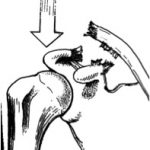
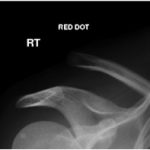
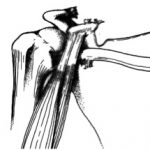
The more severe grades (4, 5 and 6) will require surgery to put the joint back together and to repair the torn ligaments.
If the decision is made that the joint requires surgery it is recommended that this is undertaken within 4 weeks of injury.
The preferred technique in our Unit is the Arthroscopic Tightrope Technique which was developed by Prof. Tennent in 2004.